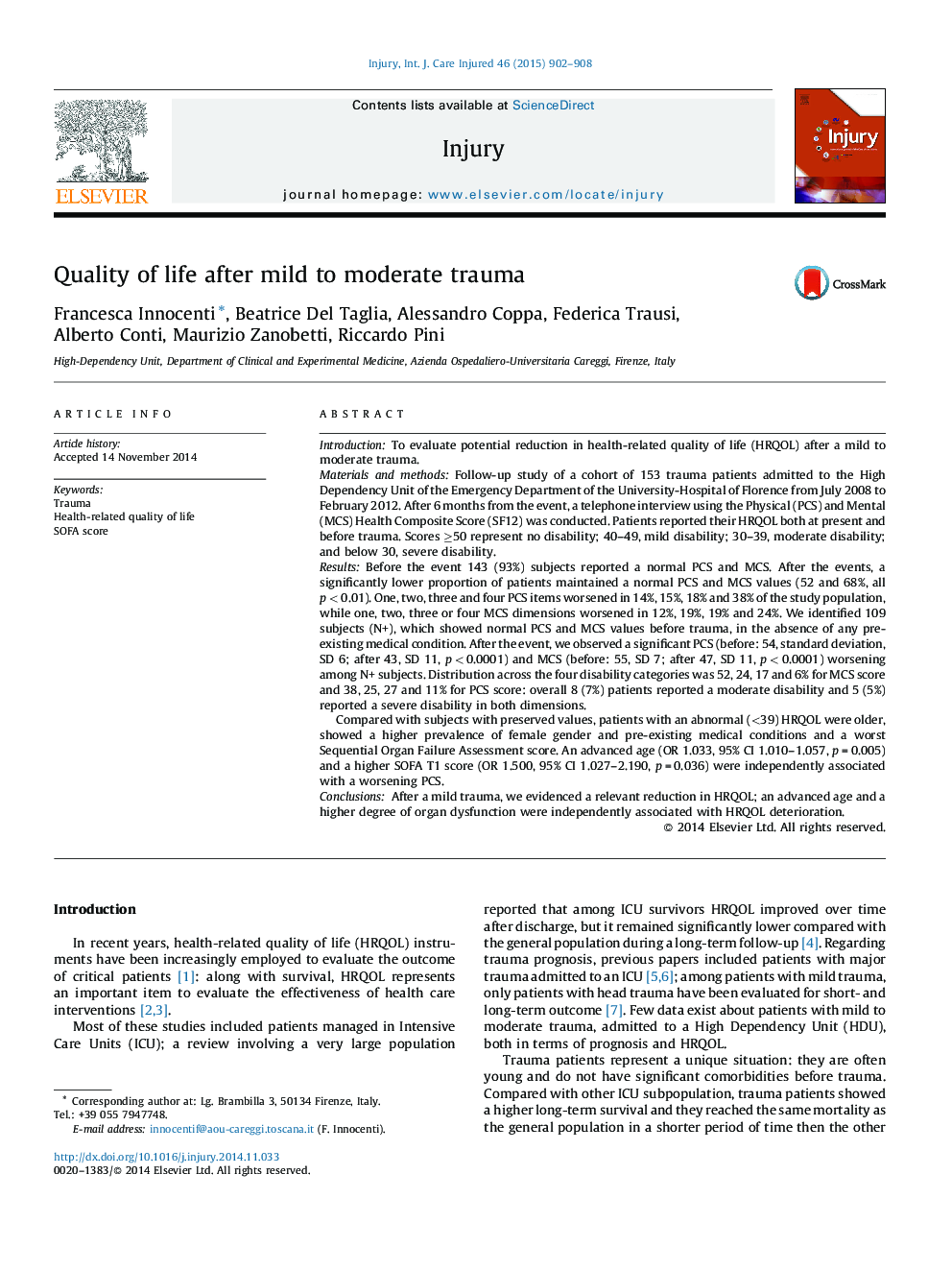| کد مقاله | کد نشریه | سال انتشار | مقاله انگلیسی | نسخه تمام متن |
|---|---|---|---|---|
| 3239336 | 1205997 | 2015 | 7 صفحه PDF | دانلود رایگان |
IntroductionTo evaluate potential reduction in health-related quality of life (HRQOL) after a mild to moderate trauma.Materials and methodsFollow-up study of a cohort of 153 trauma patients admitted to the High Dependency Unit of the Emergency Department of the University-Hospital of Florence from July 2008 to February 2012. After 6 months from the event, a telephone interview using the Physical (PCS) and Mental (MCS) Health Composite Score (SF12) was conducted. Patients reported their HRQOL both at present and before trauma. Scores ≥50 represent no disability; 40–49, mild disability; 30–39, moderate disability; and below 30, severe disability.ResultsBefore the event 143 (93%) subjects reported a normal PCS and MCS. After the events, a significantly lower proportion of patients maintained a normal PCS and MCS values (52 and 68%, all p < 0.01). One, two, three and four PCS items worsened in 14%, 15%, 18% and 38% of the study population, while one, two, three or four MCS dimensions worsened in 12%, 19%, 19% and 24%. We identified 109 subjects (N+), which showed normal PCS and MCS values before trauma, in the absence of any pre-existing medical condition. After the event, we observed a significant PCS (before: 54, standard deviation, SD 6; after 43, SD 11, p < 0.0001) and MCS (before: 55, SD 7; after 47, SD 11, p < 0.0001) worsening among N+ subjects. Distribution across the four disability categories was 52, 24, 17 and 6% for MCS score and 38, 25, 27 and 11% for PCS score: overall 8 (7%) patients reported a moderate disability and 5 (5%) reported a severe disability in both dimensions.Compared with subjects with preserved values, patients with an abnormal (<39) HRQOL were older, showed a higher prevalence of female gender and pre-existing medical conditions and a worst Sequential Organ Failure Assessment score. An advanced age (OR 1.033, 95% CI 1.010–1.057, p = 0.005) and a higher SOFA T1 score (OR 1.500, 95% CI 1.027–2.190, p = 0.036) were independently associated with a worsening PCS.ConclusionsAfter a mild trauma, we evidenced a relevant reduction in HRQOL; an advanced age and a higher degree of organ dysfunction were independently associated with HRQOL deterioration.
Journal: Injury - Volume 46, Issue 5, May 2015, Pages 902–908
